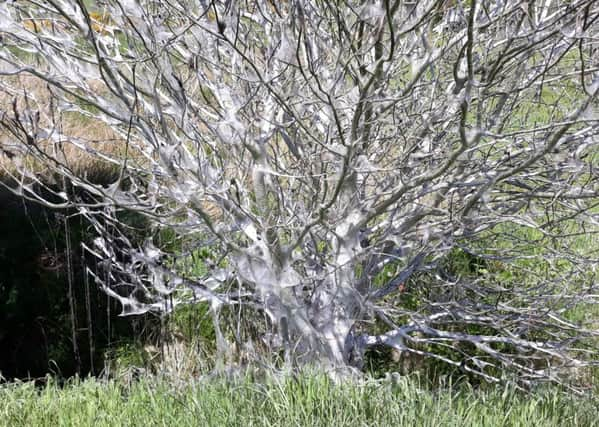Fears over '˜ghostly trees covered in webs'


However, the trust says that the culprits are bird cherry ermine moths, and not as some people think the dangerous oak processionary moth.
George Anderson of Woodland Trust Scotland said: “Every few years this species explodes in numbers and they strip the host tree of its leaves.
Advertisement
Hide AdAdvertisement
Hide Ad“Trees normally recover the following year so it is not as drastic as it looks.
“It does look very sinister as they drape entire trees in their silk.
“We have had some enquiries from people concerned that they were seeing oak processionary moth.
“These are a real problem in the south of England and cause severe allergic reactions but thankfully they have not been found in Scotland.
Advertisement
Hide AdAdvertisement
Hide Ad“It is the bird cherry ermine moth we are seeing at the moment and it is entirely harmless.”
The adult moths fly in July and August and are named for their similarity to ermine robes – creamy white with black spots – plus the fact they feed only on bird cherry leaves.
Outbreaks have also been reported at the Trust’s Geordie’s Wood at Glen Devon and it is likely the species is having a bumper year across many parts of the country.